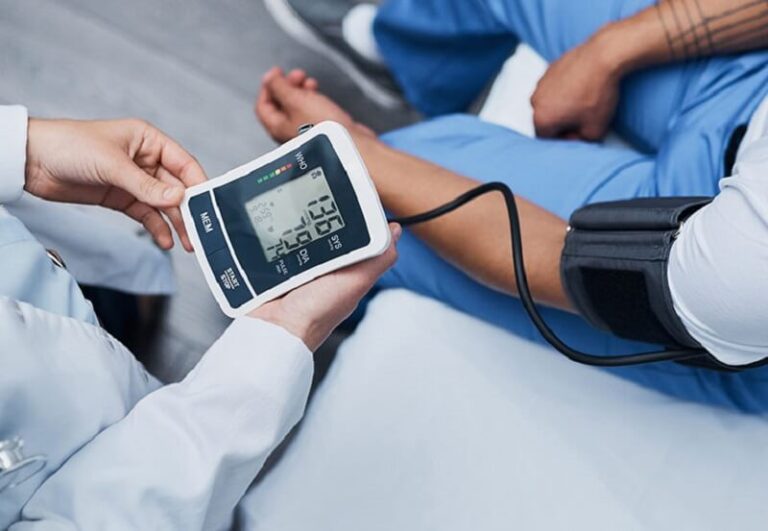Around 10-30% of people report regularly experiencing abdominal bloating, which is very common. The figure increases to 96% for those who have had the intestinal disorder. (2)
Although bloating is sometimes caused by severe medical conditions, it is most often caused by diet and some foods or ingredients to which you are intolerant.
Read on to find out precisely what bloating is and what foods to eat and which to avoid to alleviate this problem.
What is swelling?
Bloating is the term that refers to a state of the digestive system caused by the retention of liquid or gas; it usually occurs after eating. (1) Swelling can cause pain, discomfort, and a feeling of heaviness. It can also make your tummy look more extensive.
Several studies affirm that the bloating phenomenon is usually due to excess gas production or alterations in the movement of the muscles of the digestive system. (1,2,3)
Bloating is not the same as water retention, but the two terms are often used interchangeably. Bloating is a broader term that involves excessive amounts of solids, liquids, or gases in your digestive system.
How to reduce abdominal bloating?
There are several ways to reduce abdominal bloating. Make sure you are not consuming an excessive amount of foods that cause gas or those to which you can generate a food allergy. Also, the use of certain supplements can help alleviate a bloated belly. Here are ten effective ways to reduce or eliminate puffiness:
- Don’t overeat at one time
Being full can make you feel bloated, but the problem is nothing more than simply overeating. Try smaller portions if you eat large meals and tend to feel uncomfortable afterward. Add another meal daily if necessary.
Many people who experience bloating do not have an enlarged stomach or increased pressure in the abdomen. The problem is mainly sensory. (3)
A person with a tendency to bloat will experience discomfort from a smaller amount of food than a person who rarely feels bloated.
For this reason, simply eating smaller meals can be incredibly helpful.
Chewing your food better can also help. It reduces the amount of air you swallow with food (a cause of bloating) and slows down your eating, related to reduced food intake and smaller portions.
- Rule out allergies and food intolerances
Eating foods that you are intolerant to can cause excess gas production, bloating, and other symptoms.
Both lactose and fructose are part of a larger group of indigestible carbohydrates known as FODMAPs. FODMAP intolerance is one of the most common causes of bloating and abdominal pain. (3)
Here are some common foods to consider:
- Lactose – Lactose intolerance is associated with many digestive symptoms, including bloating. Lactose is the main carbohydrate in milk.
- Fructose – Fructose intolerance can lead to bloating.
- Eggs: Gas and bloating are common symptoms of an egg allergy.
- Wheat and gluten – Many people are intolerant to gluten, a protein from wheat, spelled, barley, and some other grains. This can lead to various adverse effects on digestion, including bloating.
- Avoid swallowing air and gases.
There are two sources of gas in the digestive system. One is the gas produced by bacteria in the intestine. The other is air or gas that is ingested when eating or drinking. An excess of either source can naturally lead to bloating.
The most significant factor here is carbonated drinks like soda or carbonated drinks. Drinks contain bubbles with carbon dioxide, a gas that can be released from the liquid once it reaches the stomach.
Chewing gum, drinking through a straw, and eating while talking or in a hurry can also lead to increased swallowed air.
- Do not eat foods that are very high in fiber or fat.
Some high-fiber foods can cause people to produce large amounts of gas.
The main foods here are legumes like beans and lentils and some whole grains. Try keeping a food log to find out if some foods tend to give you more gas or bloating than others.
Fatty foods can also slow down digestion and stomach emptying. This can benefit satiety (and possibly aid in weight loss), but it can be a problem for people with a tendency to bloat.
Try eating fewer beans and fatty foods to see if it helps with bloating.
- Be careful with sugar alcohols and other sweeteners.
Sugar alcohols are commonly found in food sugarless chewing gums. These sweeteners are generally considered healthier alternatives to sugar.
However, in large quantities, they can cause digestive problems. Bacteria in the large intestine digest them and produce gas.
Try to avoid sugar alcohols like xylitol, sorbitol, and mannitol. The erythritol sugar alcohol can be tolerated better than others but can also cause digestive problems in large doses.
Avoid other sweeteners capable of generating gases, such as sucralose. Be sure to read the labels on foods, especially those without added sugar.
- Take digestive enzyme supplements.
Certain over-the-counter products can also help with bloating, such as supplemental enzymes that can help break down indigestible carbohydrates.
Some examples are lactase, an enzyme that breaks down lactose and is helpful for people with lactose intolerance. Or pepsin that breaks down proteins in foods like meat, eggs, and dairy into smaller peptides
These types of supplements can provide almost immediate swelling relief in many cases.
- Avoid constipation
Studies show that constipation can often exacerbate symptoms of bloating. (4) In general, it is recommended to consume more soluble fiber for constipation.
However, increasing fiber should be done with caution for people who have gas or bloating because fiber can often make things worse.
If you have bloating and constipation, you can try drinking more water or increasing your physical activity, which can be effective and healthy ways to combat constipation. (5)
- Take probiotics
Gas produced by bacteria in the gut is one of the main contributors to bloating. Many different types of bacteria reside there, and they can vary from person to person.
It seems logical that the number and type of bacteria may have something to do with gas production, and some studies back it up.
Several clinical studies have shown that certain probiotic supplements can help reduce gas production and bloating in people with digestive problems. (6.7)
Probiotic supplements can have many other benefits, so they are worth trying.
- Peppermint oil can help.
Bloating can also be due to impaired function of the digestive tract muscles. Medications called antispasmodics, which can help reduce muscle spasms, be helpful.
Peppermint oil is a natural substance that is believed to work similarly. (8)
Numerous studies have shown that it can reduce various symptoms in patients with digestive problems, including bloating. Peppermint oil is available in supplement form.
- See a doctor rule out a severe or chronic condition.
If you have chronic abdominal bloating that causes severe problems in your day-to-day life or suddenly gets very bad, definitely see a doctor.
There is always the possibility of a severe medical condition related to bloating, and diagnosing digestive problems can be difficult.
However, in most cases, bloating can be reduced or even eliminated with simple changes in diet.
ABSTRACT
If you experience abdominal bloating, the cause is highly likely to be excess gas or fluid in your stomach. Avoiding sweeteners, foods with gluten, lactose, and carbonated sodas are some simple ways to help reduce bloating. In any case, if you experience swelling frequently, you should consult your doctor.







